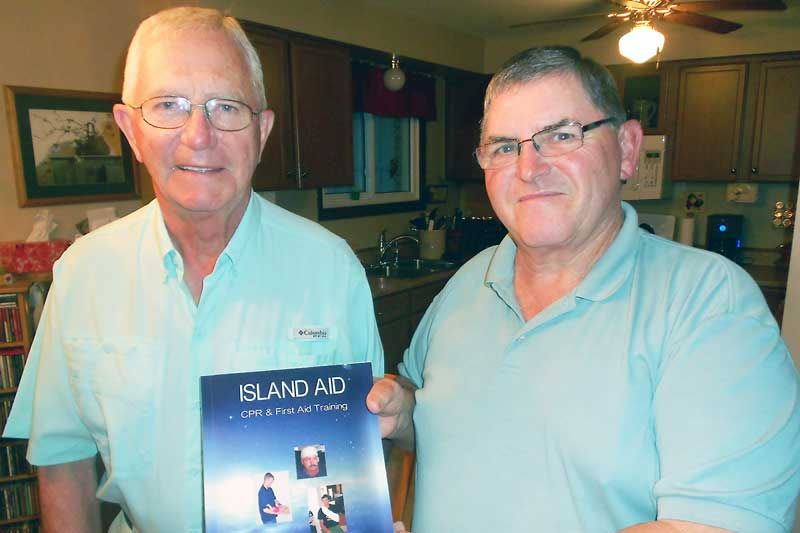Catherine Reynolds | Sep 15, 2016
Paul Davey and Harold Lake are experienced fishing guides who typically catch fish when they’re on duty. Last Saturday, they also saved a life.
Friends for decades, the men started their day like any other: boats, supplies and customers ready for an 8 am start on Loughborough Lake. The sky was blue and the water was calm. It was a perfect day for fishing.
But as it happened, it was not just another day on the water. By 3 pm that afternoon, a customer was in cardiac arrest at Loughborough Lake Marina in Battersea.
The men quickly scrambled to help the victim, a Rochester man who had collapsed seconds earlier. When they reached him, his vital signs were absent. Taking over almost immediately from the man’s wife, Davey and Lake began to perform cardiopulmonary resuscitation, commonly known as CPR. The men performed chest compressions and mouth-to-mouth for about 10 minutes until help arrived.
The fishing guides credit their life-saving medical attention to the training they received to qualify for a commercial fishing guide license. Both men belong to the Storrington Guides Association.
“We were trained to do what we did and to stay with it until first responders arrived on the scene,” said Lake, 70. “I think we did it well.”
“We just did our job,” said Davey, 75.
Holding the first aid book by Island First Aid Services, Lake advocated for the value of first aid training. “As far as I’m concerned, they taught us pretty good. It doesn’t hurt to know it. If you have the time, take the course,” he said.
Still rattled from their experience two days later, the fishing guides have since spoken with the victim, who was resting comfortably in a nearby medical centre and thanked the fishing guides personally for saving his life.
“He’s already planning on returning next year,” said Davey with a chuckle. “We’ve known this guy for a lot of years.”
“It’s tough when he’s a friend,” Lake agreed. “It was an awful thing looking at a friend who wasn’t coming to. It was tough and I personally thought it was close to not working.”
Reflecting on their experience, the men, who have 87 years of guiding experience between them, agreed it would help in situations like these if businesses on the water have a defibrillator like the one the Storrington District firemen used to revive the victim when they arrived at the scene.
“We could have used it,” confirmed Davey. “His heart quit.”
“I was very scared,” Davey said about the seriousness of the situation. “It looked like he was going to die on us.”
“I definitely thought that,” agreed Lake. “So much happened, just like we were told in our training. That’s why we were just doing our job.”
More Stories
- Changes to Safe Properties Bylaw Spark a Major Reaction from CF Residents
- Robert Hogan Bus Lines Give Back
- Frontenac County to Require ATV Riders to Pay for Trail Use
- Snow Social in Sydenham
- Lessons From the Past
- Chicken Bylaw Becoming a Reality in Addington Highlands
- Central Frontenac Says No More Pickleball in Piccadilly Hall
- South Frontenac Council
- A Testament to the Community
- Dr Shahram Masouleh, Practice Ready Ontario, and Sharbot Lake Family Health Team

